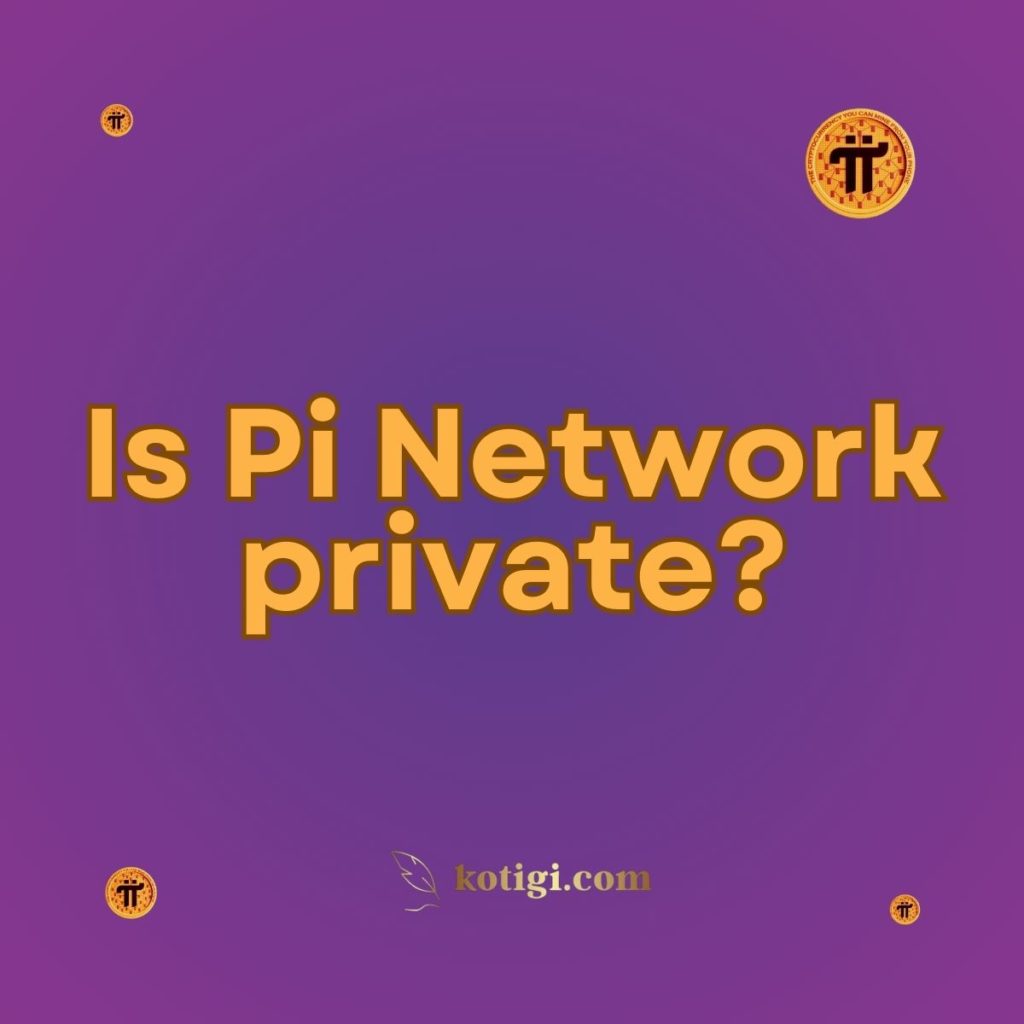
Is Pi Network private?
Pi Network offers some privacy features but is not entirely private in the way that certain other cryptocurrencies, like Monero or Zcash, are designed to be. Here’s a breakdown of the privacy aspects of Pi Network:
1. User Data and Privacy
1.1. Personal Information:
When you join Pi Network, you provide some personal information, such as your phone number and, potentially, your name, depending on how you sign up. This information is used to create and verify your account. The Pi Network team has stated that they take user privacy seriously and that personal data is not shared with third parties without consent.
1.2. KYC (Know Your Customer) Verification:
To fully participate in the Pi Network and eventually withdraw or transfer your Pi coins, you will need to go through a KYC verification process. This process involves submitting identification documents, which are used to confirm your identity. While this step is important for regulatory compliance and preventing fraud, it does mean that Pi Network requires more personal data than some purely anonymous cryptocurrencies.
2. Transaction Privacy
2.1. Public Ledger:
Pi Network operates on a blockchain, which means that transactions are recorded on a public ledger. This ledger is visible to all participants in the network, similar to how Bitcoin and Ethereum operate. Each transaction includes details such as the sender’s and receiver’s wallet addresses and the amount of Pi transferred.
2.2. Anonymity:
Although transactions are public, they are not directly linked to your personal identity on the blockchain. Instead, transactions are associated with your wallet address, which is a string of alphanumeric characters. However, if someone knows your wallet address, they can see your transaction history. This level of privacy is similar to other major cryptocurrencies but does not provide the full anonymity of privacy-focused coins.
3. Comparison with Privacy-Focused Cryptocurrencies
3.1. Lack of Advanced Privacy Features:
Pi Network does not currently offer advanced privacy features like transaction obfuscation, mixing, or shielded transactions, which are common in privacy-focused cryptocurrencies like Monero or Zcash. These features are designed to hide transaction details, making it nearly impossible to trace the flow of funds.
3.2. Transparency vs. Privacy:
The Pi Network’s approach is more aligned with transparency and regulatory compliance rather than complete anonymity. While this makes it easier for Pi Network to gain mainstream acceptance and comply with regulations, it also means that users do not have the same level of privacy protection as they might with other, more private cryptocurrencies.
4. Data Security
4.1. Encryption and Security Measures:
The Pi Network employs standard encryption protocols to secure user data and transactions. This ensures that your personal data and transaction information are protected from unauthorized access. However, like any online platform, it’s essential to practice good security habits, such as using strong passwords and securing your device, to protect your Pi account.
4.2. Centralization Concerns:
Some users have expressed concerns about the centralization of certain aspects of the Pi Network, particularly in relation to data control and management by the core team. While the Pi Network aims to be decentralized, it is still in its development stages, and some centralization is currently necessary to guide its growth.
5. Future Developments
5.1. Potential Privacy Enhancements:
As Pi Network continues to evolve, there may be opportunities to enhance privacy features. The development team might introduce new tools or options that allow for more private transactions or better protection of user data.
5.2. Community Input:
The Pi Network team often engages with its community for feedback. If privacy becomes a more prominent concern among users, future updates may prioritize these features. Staying informed about network updates can help you take advantage of any new privacy tools that are introduced.
Conclusion
Pi Network provides a reasonable level of privacy by securing user data and keeping transaction details relatively anonymous through wallet addresses. However, it does not offer the advanced privacy features found in some other cryptocurrencies that are specifically designed for anonymity. While Pi Network focuses on transparency and regulatory compliance, users seeking complete privacy may find its current features somewhat limited. As the network grows, further privacy enhancements may be introduced, but for now, it’s essential to understand the balance between transparency and privacy within the Pi ecosystem.





